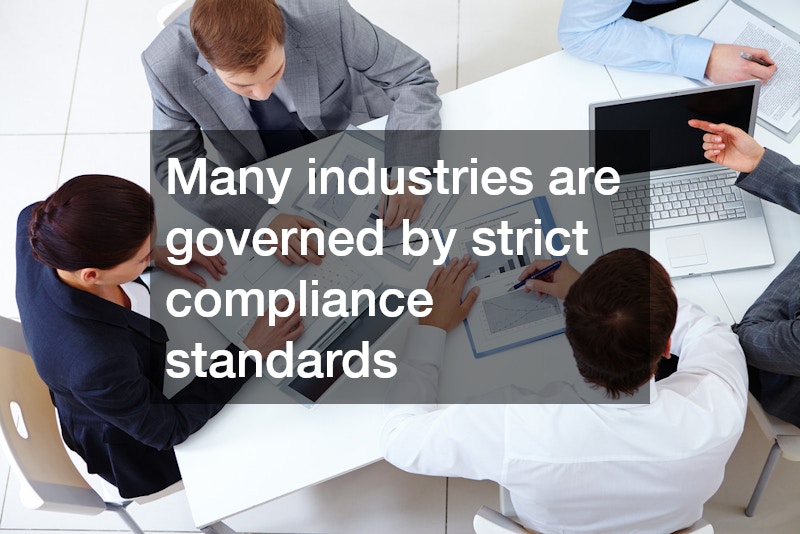
In today’s highly regulated industrial and manufacturing environments, maintaining compliance isn’t just about following the rules—it’s about protecting your business from costly violations, preserving your reputation, and promoting operational excellence. As regulatory standards grow more stringent across sectors like pharmaceuticals, food production, energy, and chemicals, companies are turning to advanced technological solutions for support. That’s where process monitoring companies come in.
These companies offer tools, systems, and services that make it possible to track every step of production in real time. From monitoring temperature and pressure to tracking chemical levels and machine performance, process monitoring businesses play a critical role in keeping businesses compliant with local, national, and international regulations.
What Do Process Monitoring Companies Do?
Process monitoring businesses specialize in creating and implementing technologies that collect and analyze real-time data from industrial systems. These systems can include sensors, automation software, and dashboards that report on everything from equipment performance to environmental conditions.
Their services are often used in environments where precision and consistency are key—such as clean rooms, laboratories, and manufacturing lines. By continuously tracking data points, companies can instantly detect deviations, prevent system failures, and correct problems before they result in regulatory issues or safety hazards. This kind of continuous oversight is not just beneficial—it’s often mandatory under industry regulations.
How Monitoring Supports Regulatory Compliance
Many industries are governed by strict compliance standards—such as FDA regulations for pharmaceutical companies, HACCP for food production, and EPA guidelines for environmental protection. These standards often require businesses to maintain detailed records of operational metrics and prove adherence over time.
Process monitoring companies help businesses meet these requirements by automating data collection and documentation. Rather than relying on manual logs or intermittent checks, businesses can maintain a digital trail of all relevant metrics. These detailed records not only simplify audits but also demonstrate a proactive commitment to safety, quality, and compliance.
Real-Time Alerts Prevent Costly Violations
One of the key advantages process monitoring businesses provide is real-time alerting. If a system exceeds safe temperature thresholds, a filter fails, or equipment malfunctions, operators are notified instantly. This allows staff to take corrective action before a small deviation turns into a major violation.
In industries like pharmaceuticals or food processing, even minor deviations from temperature or humidity standards can result in product spoilage or contamination. Without prompt detection, companies may face product recalls, shutdowns, or even legal consequences. By catching and correcting problems early, process monitoring businesses help avoid these outcomes and keep operations on track.
Reducing Human Error and Improving Accountability
Manual processes leave plenty of room for human error. Forgetting to record a reading, miswriting data, or failing to perform routine checks can all result in gaps that regulators flag during inspections. Process monitoring businesses reduce reliance on human input by automating data collection and system checks.
Additionally, these companies often incorporate user access controls and system logs into their platforms, making it easy to track who accessed or changed what and when. This level of accountability improves data integrity and can also protect your company if any issues arise during an investigation or audit.
Supporting Industry-Specific Regulations
Process monitoring companies often tailor their solutions to meet industry-specific regulatory needs. For example, a food manufacturing facility may need to comply with FSMA or USDA guidelines, while a pharmaceutical company must meet FDA’s 21 CFR Part 11. Many process monitoring businesses offer software that’s already validated or designed to be compliant with these standards out of the box.
This not only speeds up implementation but reduces the risk of compliance issues due to technology that doesn’t meet regulatory requirements. Companies can be confident their monitoring systems meet the same standards they’re held to, simplifying the path to full regulatory alignment.
In a business environment where compliance can make or break a company’s success, process monitoring businesses provide more than just data—they offer peace of mind. By enabling real-time oversight, improving record-keeping, reducing human error, and supporting industry-specific regulations, these companies help businesses stay compliant and operationally efficient.
Partnering with a trusted process monitoring provider ensures you’re not just reacting to problems, but proactively managing your risks. Whether you’re preparing for your next audit or aiming to avoid regulatory issues altogether, process monitoring companies are a vital asset in today’s compliance-driven world.
.

